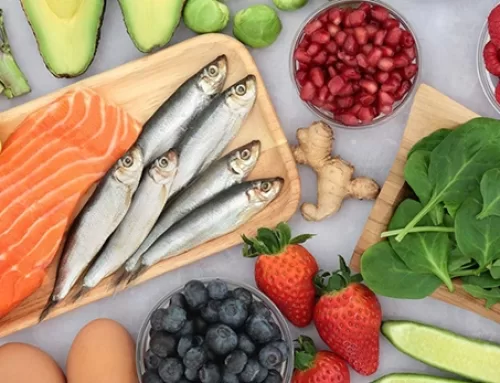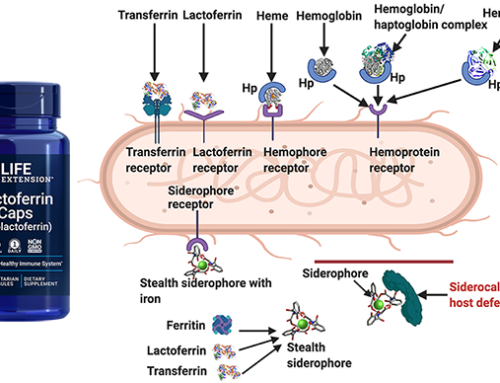It’s easy to skip meals, either deliberately or accidentally. Maybe you’re trying to drop a few pounds quickly. Maybe you’re too rushed to eat breakfast or too sleepy to cook dinner.
But what exactly is that hit-or-miss dining doing to your body? Recent studies have found that long hours on an empty stomach and skipping breakfast can trigger insulin resistance and increase your risk for type 2 diabetes. Additionally, intermittent fasting, which undeniably has many benefits, also has evidence that links it to lower energy, irritability, and nutritional deficits.
If you’re ready for a change, check out these safer and more effective alternatives that will let you enjoy breakfast, lunch, snacks, and dinner.
Losing Weight Without Skipping Meals
You may feel virtuous when you save calories by taking a pass on lunch. However, skipping meals can slow your metabolism, increase abdominal fat, and aggravate junk food cravings. There are smarter ways to slim down.
- Exercise regularly. The smart way to manage your weight is to combine a healthy diet with increased physical activity. Exercise, especially strength training, will help you maintain muscle mass, and boosts your metabolism so you burn more calories at rest.
- Make friends with food. Do you think of food as your enemy? Remember, it fuels your body and gives you pleasure. A healthy attitude about food can help you make sounder choices.
- Consume more vegetables. One of the easiest ways to slim down is to eat more produce. Most fruits and vegetables are nutrient dense and high in fiber which keeps your gut microbiome in check, your bowel movements timely and your insulin from spiking (insulin spiking leads to fat storage and possibly to Type 2 diabetes over the long term).
Planning Ahead to Avoid Skipping Meals
Do mealtimes take you by surprise? Keep healthy food handy throughout the day by becoming more organized.
- Stock your pantry. You’ll know what’s for dinner if you keep your cabinets full of basic staples. That includes whole grains, beans, and nuts.
- Carry supplies. Store yogurt in the office refrigerator for a quick meal. Pack a cooler with veggies, protein drinks, and other healthy snacks for car trips.
- Create weekly menus. Create a meal plan for you and your family so you’ll be prepared for early dinners on the night of the school play or weekend brunches when you have guests. As a bonus, you’ll probably spend less time grocery shopping if you can do it all in one trip.
- Research travel destinations. Locating the nearest farmer’s market or vegetarian restaurant in any neighborhood is as easy as going online. Line up your options before you leave home.
Saving Time Without Skipping Meals
Balanced meals can be whipped up quickly. Find shortcuts that work with your busy schedule.
- Simplify recipes. Look for recipes that require only a few ingredients or promise to put dinner on the table in 15 minutes or less. Use shortcuts to streamline your favorite dishes when you’re in a rush.
- Shop the frozen aisle. Speaking of shortcuts, the freezer section could be your first stop. Frozen vegetables usually have nutritional value similar to their fresh counterparts.
- Cook in batches. Double the recipe the next time you cook lasagna or chili. Separate the leftovers into individual servings and freeze them for fast meals in the future.
- Revamp your kitchen. Renovating your kitchen is expensive, but you may be able to make simple adjustments that will speed up meal preparation. Send seldom-used equipment off to the basement or storage to free up space. Buy drawer organizers that will let you grab the steamer immediately instead of searching for it. An organized kitchen will make meal prep easier and more enjoyable.
Instead of missing meals, give your mind and body the nourishment they need to keep you in top form. Managing your time and losing weight gradually will help you to stay fit and productive for the long term. A fit and healthy body can bring about a more positive outlook on life and everything you do! You can do this, because you’re worth it!
It’s easy to skip meals, either deliberately or accidentally. Maybe you’re trying to drop a few pounds quickly. Maybe you’re too rushed to eat breakfast or too sleepy to cook dinner.
But what exactly is that hit-or-miss dining doing to your body? Recent studies have found that long hours on an empty stomach and skipping breakfast can trigger insulin resistance and increase your risk for type 2 diabetes. Additionally, intermittent fasting, which undeniably has many benefits, also has evidence that links it to lower energy, irritability, and nutritional deficits.
If you’re ready for a change, check out these safer and more effective alternatives that will let you enjoy breakfast, lunch, snacks, and dinner.
Losing Weight Without Skipping Meals
You may feel virtuous when you save calories by taking a pass on lunch. However, skipping meals can slow your metabolism, increase abdominal fat, and aggravate junk food cravings. There are smarter ways to slim down.
- Exercise regularly. The smart way to manage your weight is to combine a healthy diet with increased physical activity. Exercise, especially strength training, will help you maintain muscle mass, and boosts your metabolism so you burn more calories at rest.
- Make friends with food. Do you think of food as your enemy? Remember, it fuels your body and gives you pleasure. A healthy attitude about food can help you make sounder choices.
- Consume more vegetables. One of the easiest ways to slim down is to eat more produce. Most fruits and vegetables are nutrient dense and high in fiber which keeps your gut microbiome in check, your bowel movements timely and your insulin from spiking (insulin spiking leads to fat storage and possibly to Type 2 diabetes over the long term).
Planning Ahead to Avoid Skipping Meals
Do mealtimes take you by surprise? Keep healthy food handy throughout the day by becoming more organized.
- Stock your pantry. You’ll know what’s for dinner if you keep your cabinets full of basic staples. That includes whole grains, beans, and nuts.
- Carry supplies. Store yogurt in the office refrigerator for a quick meal. Pack a cooler with veggies, protein drinks, and other healthy snacks for car trips.
- Create weekly menus. Create a meal plan for you and your family so you’ll be prepared for early dinners on the night of the school play or weekend brunches when you have guests. As a bonus, you’ll probably spend less time grocery shopping if you can do it all in one trip.
- Research travel destinations. Locating the nearest farmer’s market or vegetarian restaurant in any neighborhood is as easy as going online. Line up your options before you leave home.
Saving Time Without Skipping Meals
Balanced meals can be whipped up quickly. Find shortcuts that work with your busy schedule.
- Simplify recipes. Look for recipes that require only a few ingredients or promise to put dinner on the table in 15 minutes or less. Use shortcuts to streamline your favorite dishes when you’re in a rush.
- Shop the frozen aisle. Speaking of shortcuts, the freezer section could be your first stop. Frozen vegetables usually have nutritional value similar to their fresh counterparts.
- Cook in batches. Double the recipe the next time you cook lasagna or chili. Separate the leftovers into individual servings and freeze them for fast meals in the future.
- Revamp your kitchen. Renovating your kitchen is expensive, but you may be able to make simple adjustments that will speed up meal preparation. Send seldom-used equipment off to the basement or storage to free up space. Buy drawer organizers that will let you grab the steamer immediately instead of searching for it. An organized kitchen will make meal prep easier and more enjoyable.
Instead of missing meals, give your mind and body the nourishment they need to keep you in top form. Managing your time and losing weight gradually will help you to stay fit and productive for the long term. A fit and healthy body can bring about a more positive outlook on life and everything you do! You can do this, because you’re worth it!







